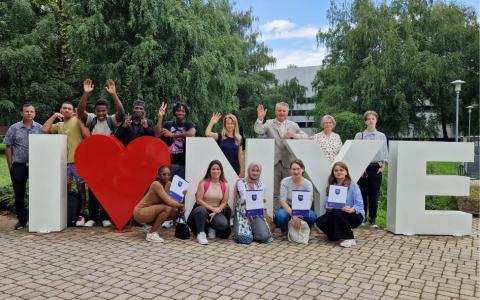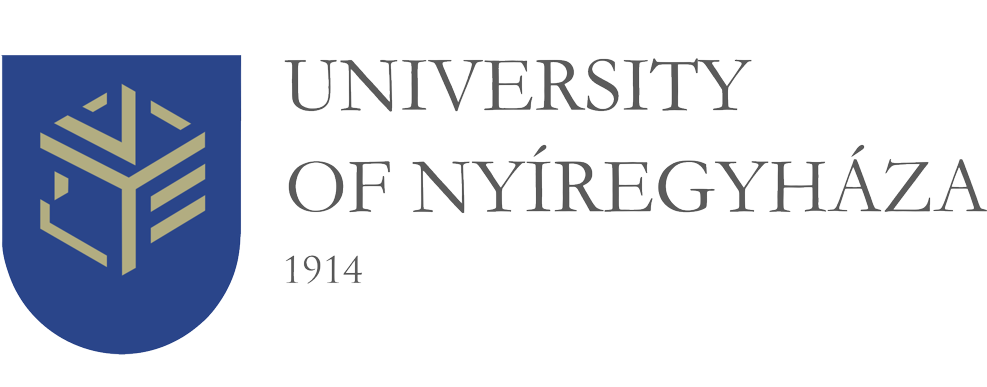
Grammar rules, Szatmár flavors, and panoramic views of Tokaj—these were all part of the two-week cultural and language trip offered by the University of Nyíregyháza to international students. Participants from Estonia, India, and England arrived for the 2025 summer university program to discover the richness of the Hungarian language.
In the summer of 2025, the University of Nyíregyháza organized its third two-week Hungarian language and cultural program entitled "Summer University Nyíregyháza." The event was organized with the support of the Tempus Public Foundation as part of a scholarship program, as well as on a self-funded basis. The aim of the program is to provide foreign students motivated to learn Hungarian with an opportunity to develop their language skills and learn about Hungarian culture and traditional values.
This year, scholarship recipients came from Estonia, France, India, Indonesia, and Russia. They were joined by current and prospective students of the University of Nyíregyháza on July 7, bringing the total number of participants to thirteen. The participants arrived at the course with different levels of language proficiency—beginner, intermediate, and advanced—and were taught by university instructors Dr. Erika Schmelczer, Erzsébet Véghseőné Cseh, and Dr. Kálmán Kiss, who has also been coordinating the Summer University for the past few years. "We teachers are always happy to prepare for the course, and every day we see the progress being made in building knowledge. "We teachers are always happy to prepare for the course, and every day we see the progress and how knowledge is built up. Those who didn't even know where Nyíregyháza was at the beginning now greet, speak and ask questions in Hungarian. These two weeks are a milestone for them," said Dr. Kálmán Kiss.
In addition to language learning, cultural programs are given special emphasis every year during the course. Students participated in excursions to Tokaj and Bereg-Szatmár, folk dance and folk costume shows, visits to open-air museums and animal parks, as well as gastronomic events. Personal experiences and authentic locations played an important role in helping students to consolidate their language skills and form an emotional connection to what they had learned, explained Dr. Kálmán Kiss.
Saffa Elallypta, who came from Indonesia and is training to be a communications and social media expert, studied in the beginner's group and plans to obtain her master's degree in Budapest. "I visited Hungary three years ago and wanted to return. When I found this course, I knew this was the place for me. I had a great time in Nyíregyháza, and one of my most memorable experiences was sightseeing in Tokaj."
Ashish Sharma, a software developer from New Delhi, is also a member of the beginner group. "I only speak Indian English, but I've always wanted to learn another foreign language. My friends told me about the course in Nyíregyháza. I was already fascinated by the sound of the Hungarian language, which is unique and, in my opinion, incomparable to any other. Unlike English, I find Hungarian very logical, because in Hungarian, for example, we don't separate suffixes from words, but connect them. I enjoyed every day here. My plans for the future include continuing to learn the language, and I would also like to work here."
The intermediate group was already conversing in Hungarian. Ari Suumann is studying Estonian and Finno-Ugric languages at the University of Tartu in Estonia. "I think that every foreign language is difficult if we are not motivated to learn it. I really enjoy learning Hungarian, so it's easier for me, and I see that Estonian and Hungarian are very similar."
Aureline Ágnes Yolanda Sipos is studying Hungarian at the Sorbonne in Paris. "I came to this course on the recommendation of one of my teachers. My father and grandparents are Hungarians from Transylvania, but unfortunately I didn't learn the language as a child. The dance house, the visits to Tokaj and Szatmár helped me a lot to connect with the culture. I would like to speak Hungarian perfectly, and I plan to continue my studies in Budapest."
Pudova Tatiana came from Russia, while Miriam Miranda arrived from Angola. Both are members of the advanced group. Miranda will be a student at the University of Nyíregyháza from September, as will Josilda Mendes, who is also from Angola. Josilda studied Hungarian for a year at the University of Nyíregyháza, while Miranda transferred here from a university in Budapest to study mechanical engineering. "I find this language very difficult, but I like it, and most importantly, I am motivated."
At the end of the program, the course was concluded with an oral exam and a written test. The learning paid off: all participants passed the final exam, so all participants received a micro-certificate from the University of Nyíregyháza. The program was organized by the Office of Priority Projects at the University of Nyíregyháza. The university's goal is to continue to play an active role in teaching Hungarian as a foreign language and promoting the cultural values of the region.


